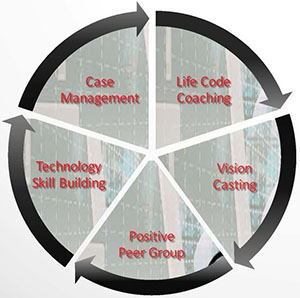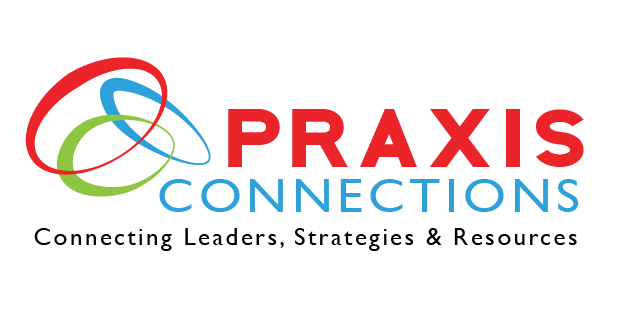CODE FOR LIFE: TECHNOLOGY & LIFE CODING
The Problem: A New Economy Requires New Skills
New York is our nation’s largest and most influential city. It is at the forefront of finance, fashion, publishing, and technology. It is a hub for international commerce and politics. It is also home to the greatest number of billionaires. New York’s five boroughs are teeming with diversity—containing over nine million residents who come from every nation in the world. And just over one million children attend a New York City public school. Sadly, in nineteen of the city’s districts, at least twenty-five percent of those children are living in poverty. In fourteen districts, ten percent of students are living in shelters. And in five districts, the number of students living in shelters exceeds fifteen percent. In short, there are roughly 105,000 homeless students in the New York City public school system, and eighteen percent of them are five years old or younger.
The graduation rate is sixty-five percent for black and Hispanic students and a dismal thirty-four percent for English language learners. As a result, too many of New York’s young people are not equipped for an employment environment that requires more than a high school education and unable to attain jobs in growing and emerging markets.
Technology is one the fastest growing job sectors in New York City, with Google, Facebook, FourSquare, and other companies located here. Further growth in technology is projected to increase by twenty-two percent before 2020 for IT-related jobs with salaries starting around $70,000. Investment in technology companies is also on the rise. As a result, with approximately 1.8 million IT jobs available today, there is currently only one engineer for every five positions. However, these positions are beyond the reach of most children living in poverty. They’re isolated from the opportunities and education required to participate in our new economy. As a result, many young people remain on the margins of society and see technology as something to use, but not as something they can create or contribute to. This is an unfortunate fact, especially when weighed against the ten percent or higher unemployment rate in twenty-six of New York City’s districts. The need to remove the financial and educational barriers to IT jobs for those in low-income neighborhoods is evident. Without intervention, the disadvantage of those living in poverty will only grow greater.
Praxis Connections’ Collaborative Solution: Skill Building for a New Economy
CODE FOR LIFE is an exciting new collaborative initiative that unites Praxis Connections, Nyack College, the tech community, and local church partners. CODE FOR LIFE combines the proximity of (and therefore ease of access to) neighborhood churches, the resources of Nyack College’s math and science departments, and the expertise of technology professionals to bring practical tools for professional and economic success to kids living in high poverty neighborhoods. CODE FOR LIFE employs a theory and methodology of change that will transform the way young people view themselves and their future through vision casting, life and technology coaching, case management, positive peer group experiences, and skill building—especially as it relates to coding. By participating in CODE FOR LIFE, young people in high poverty neighborhoods can develop practical life skills and the technological proficiency they’ll need to thrive for the rest of their lives. Our mission at CODE FOR LIFE is to create an onramp to the new technology economy for the young people living in high poverty neighborhoods by means of a church-based technology program.
History: Discovering the Problem & the Solution
Praxis Connections’ President, Chris Troy, met monthly with hundreds of pastors and community leaders who are deeply committed to the communities of Harlem, Brownsville, Bedford-Stuyvesant, East Flatbush, Hunts Point, Mott Haven, Morrisania, and Highbridge. They discussed how to best meet the needs in their neighborhoods and improve the prospects for residents of their communities. A lack of access to technology-based education and resources was identified as an ever-widening gulf separating rich and poor students and putting the latter at an enormous disadvantage. Thus, CODE FOR LIFE was born as a means to equip young people living in poor communities for a positive future through technology-focused education. It was also decided that churches would provide a safe and familiar location for young people in the community to receive training in coding and other technology skills. In addition, these churches would provide the opportunity for participants to develop spiritually, emotionally, and academically.
Design & Development
Community leaders in some of New York City’s most impoverished neighborhoods requested that Praxis Connections design and develop the CODE FOR LIFE program along with a funding model for implementation at church sites in poor neighborhoods throughout the city. In response, Praxis Connections formed a design team to develop a curriculum and church-based program that would bring coding and other technology skills to neighborhoods with high levels of poverty. This team consisted of people who teach coding, work in a technology field, and who have knowledge of coding applications in the marketplace.
The CODE FOR LIFE design team developed the Creator & Maker Cross Training curriculum, which not only equips young people with mobile, web, and hardware development skills, but also exposes them to the creative process, collaboration, and design and development. In addition, sixth through twelfth graders receive the coding and technology skills they’ll need to participate in our technology-driven economy.
CODE FOR LIFE features the following:
- A life code coaching program that’s attractive to kids.
- The Creator & Maker Cross Training technology and coding curriculum, which consists of five (5) different four-week training intensives
- Certification in various code languages and their application
- Trained staff who deliver the program
- Eight churches who will serve as venues for the program
- A funding model to support delivering and growing the program
- An important partnership with Nyack College that utilizes its many resources (space, faculty, students, and financial management)

Pilot Development and Launch
Beginning in June of 2017, Praxis Connections will partner with Nyack College and churches in four neighborhoods (Bedford-Stuyvesant, East Flatbush, Harlem, and the South Bronx) to develop and launch two of CODE FOR LIFE’S Creator & Maker Cross Training programs—Web Development and Hardware. The development stage will include the following: site selection, curriculum development, instructor recruitment, and partnership cultivation. The pilot phase will include two four-week sessions with classes beginning in October at each of the Code for Life sites and serve a total of 160 students. Praxis Connections will track outcomes and make any necessary improvements before implementation of the full program. The pilot program will also measure the increase in participants’ skill levels, their engagement, instructor effectiveness, and the utility of both online and on-site instruction. A comparison of the pilot program across multiple sites will provide an in-depth assessment of the program’s effectiveness.
Program Expansion
Beginning in January of 2018, and building upon knowledge gained during the pilot program, CODE FOR LIFE will launch the Creator & Maker Cross Training courses at four more church locations. At this stage, each of the four-week Creator & Maker courses in web, mobile, and hardware development will be offered at eight locations (four in Brooklyn, two in Harlem, and two in the South Bronx). Through these courses, CODE FOR LIFE will equip young people with the life and technology skills they will need to thrive in our digital and data-driven economy. By the end of summer 2018, we project that forty-eight students will have completed all five of the Creator & Maker Cross Training Intensives and received their accreditation. Additionally, we anticipate having 346 active participants by the fall of 2018.
Leadership
CHRIS TROY
Chris Troy has over thirty-five years of non-profit, youth development, and ministry experience, and has seen his work impact the communities and lives of at-risk youth and families. During his time in Boston, as founder and president of the Boston Urban Youth Foundation, Mr. Troy established youth ministry programs in partnership with sixteen of Boston’s public schools that facilitated dramatic improvements in the lives of chronically truant students and became the subject of a Harvard Graduate School of Education study. Truancy among the highest risk students was reduced by fifty-three percent in the first year and by sixty-eight percent in the second year. Mr. Troy also created a successful scholarship program that placed students in parochial schools. As a result of both the truancy and scholarship programs, over two hundred youth from high poverty neighborhoods attended college. For these and other initiatives under Mr. Troy’s leadership, the Boston Urban Youth Foundation has received recognition from the Lumina Foundation College Pathways Network, EdVestors, and the Social Innovation Forum.
Collaboration, partnership, innovation, research, and creative programming are all part of Mr. Troy’s background. Since forming Praxis Connections, Mr. Troy has worked with the Luis Palau Association to develop twenty-four church-based, neighborhood-focused collaborations with over three hundred churches that work in the areas of justice, mercy, and education. Mr. Troy has also worked on several collaborative efforts in the high poverty neighborhoods of New York City to decrease poverty and increase opportunity. It is his hope that CODE FOR LIFE will have a lasting impact on the lives of New York City’s most at-risk youth by providing highly relevant training and opening new doors of opportunity for them professionally.
JOHNNY ACEVEDO
Johnny Acevedo has been tinkering with Legos, bicycles, audio equipment, computers, and various building materials since childhood. He studied electrical engineering at Brooklyn Technical High School before attending the New York Institute of Technology. He graduated from the City College of New York as a Rosenberg/Humphrey Scholar with a major in sociology and a minor in public policy. He then earned a master’s in religion with an emphasis on urban missions from Westminster Theological Seminary. He is passionate about empowering young people to become active creators and makers of technology and not merely consumers and users of technology.
Johnny currently works as an educator within the New York City public school system. In his twenty years of experience in youth development, he has started and grown technology-rich, holistic youth programs at churches, schools, and community centers in New York City and Chicago. As an education technology consultant, Johnny has helped various schools start or update their STEM initiatives and mentored several elementary and middle school robotics teams. He has developed and taught project-based technology programs at the Community Partnership Charter School in Brooklyn. And he is currently developing a maker space at Harlem Village Academy Elementary and Middle School East in the El Barrio neighborhood of New York City. (A maker space is an educational environment where members of a community can explore, tinker, design, and create.)
Johnny has been married to his wife, Melanie, for twenty-five years. They are the proud parents of Adrian and David, both of whom graduated from the New York City public school system.
DAWN C. HAYES
Dawn C. Hayes is an educator, social entrepreneur, and creative technologist focused on emergent technologies (hardware & software) and prototyping. She is passionate about creating technology to help people create things they need. As a creative technologist with a focus on prototyping, she has interests in emergent technology, creative coding, data, physical computing, 3D printing & fabrication, mixed reality, and other applied technology.
Dawn is the founder of COOL Labs (www.coollabs.org) and has taught at the City University of New York since 2010. She currently serves as the Lead Instructor and Program Associate at Laguardia Community College’s TechHire-Open Code (formerly TECH IMPACT) Web Development Boot Camp that provides career preparation for underemployed and unemployed young adults in New York City.
Dawn was born and raised in Queens where she started on her first computer at the age of 7. A Commodore 64 before earning a BA at Muskingum College and then pursuing graduate work at the ITP at NYU and Columbia University.
Code for Life Design Team Members
| Johnny Acevado | Coding & Robotics Instructor, New York Public Schools |
| Dawn C. Hayes | Adjunct Professor, CUNY & CEO of COOL Labs |
| Brett Sims Founder | Green Ready Alternative Energy Program |
| Melvin McCray | Columbia University |
| Andre Williams | The Williams Group |
| Rodney Soloman | Verisk Analytics |
| Pastor Charles Galbreath | Clarendon Road Baptist Church |
Praxis Connections Advisors
| Ruben Austria | Community Connections for Youth |
| Rudy Carrasco | Partners Worldwide |
| Romanita Hairston | Murdock Charitable Trust |
| Dr. Charles Hammond | Nyack College |
| Dr. Lopez-Humphreys | CUNY |
| Dr. Dale Irvin | New York Theological Seminary |
| Julio Medina | Exodus Transitional Community |
| Gilford Monrose | 67th Precinct Clergy Council |
| Dr. Marc Rivera | Primitiva Christian Church |
| Nicole Valentine Esq. | Synergy Business Development |
| Bishop Joseph Alexander | New Covenant Christian Ministries Worldwide |
| Dr. Harold Dean Trulear | Healing Communities USA & Howard University |
Code for Life Design Team Members
Johnny Acevado Coding & Robotics Instructor, New York Public Schools
Dawn Hayes Adjunct Professor, CUNY & CEO of Cool Labs
Brett Sims Founder, Green Ready Alternative Energy Program
Melvin McCray Columbia University
Andre Williams The Williams Group
Rodney Soloman Verisk Analytics
Pastor Charles Galbreath Clarendon Road Baptist Church
Praxis Connections Advisors
Ruben Austria Community Connections for Youth
Rudy Carrasco Partners Worldwide
Romanita Hairston Murdock Charitable Trust
Dr. Charles Hammond Nyack College
Dr. Lopez-Humphreys CUNY
Dr. Dale Irvin New York Theological Seminary
Julio Medina Exodus Transitional Community
Gilford Monrose 67th Precinct Clergy Council
Dr. Marc Rivera Primitiva Christian Church
Nicole Valentine Esq. Synergy Business Development
Arch Joseph Alexander New Covenant Christian Ministries Worldwide
Dr. Harold Dean Trulear Healing Communities USA & Howard University

